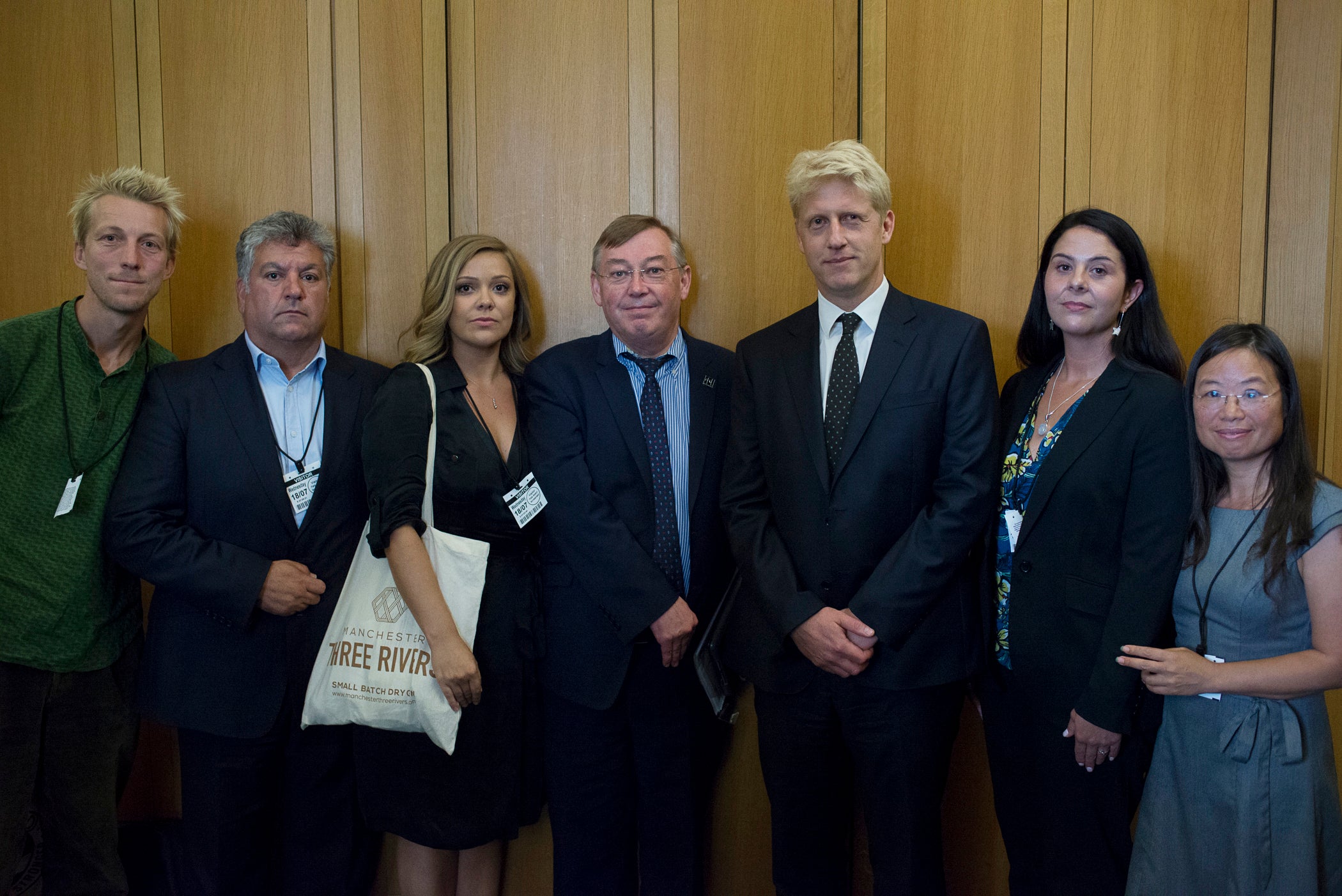Network Rail sale of railway arches plunges small businesses into uncertainty
Network Rail is selling off thousands of railway arches as it struggles with rising debt

Your support helps us to tell the story
From reproductive rights to climate change to Big Tech, The Independent is on the ground when the story is developing. Whether it's investigating the financials of Elon Musk's pro-Trump PAC or producing our latest documentary, 'The A Word', which shines a light on the American women fighting for reproductive rights, we know how important it is to parse out the facts from the messaging.
At such a critical moment in US history, we need reporters on the ground. Your donation allows us to keep sending journalists to speak to both sides of the story.
The Independent is trusted by Americans across the entire political spectrum. And unlike many other quality news outlets, we choose not to lock Americans out of our reporting and analysis with paywalls. We believe quality journalism should be available to everyone, paid for by those who can afford it.
Your support makes all the difference.The humble railway arch in Manchester didn’t look like much, but it was the answer to Dave Rigby’s prayers. Rigby had come up with the idea for Manchester’s first gin distillery when he was working as a film lecturer. He quit his job and tried running a bar, then realised he hated pushing a mop around.
It was 2013, not long after Sipsmith had overturned an archaic law preventing people setting up small distilleries. Gin distilling was on the rise. Rigby decided he wanted to make gin that captured the independent spirit of Manchester, but it took him two years to find a venue.
“I almost gave up,” Rigby says. “It was almost impossible to find a place to start a business in Manchester City Centre. The railway arch we found in Redbank was the last roll of the dice.”
His railway arch in the resurgent Green Quarter is now surrounded by small traders, from breweries and bars to a fitness studio and dry cleaners. Though arches can frequently be damp, awkward spaces, Rigby spent time turning his into the perfect place for small batch gin production. He enlisted his dad to help build all of the interiors by hand, including a mezzanine with a tasting area and a bar.
Manchester Three Rivers is in one of thousands of railway arches being sold off by Network Rail as part of a plan by the publicly owned company to concentrate on running the railways. Network Rail has said tenant leases will transfer to the new owner unchanged. But tenants like Rigby and his colleagues are facing months of uncertainty as Network Rail finalises the terms of the deal.
Many tenants tell the same story. They moved in looking for a space near to city centres and cheap rent, and spent time adapting to the awkward shape of the properties and installing basic amenities like electric sockets and toilets. In recent years, Network Rail has put up rent across many properties, sparking fears that it is inflating the value of the estate in the run up to the sale.
Network Rail denies that rent increases are linked to the sale. It says it is selling the estate to invest in the railway. But the sale comes as Network Rail grapples with spiralling debts, which increased by £5.6bn to £50.4bn in 2017-18. The Office of Rail and Road, the industry regulator, has warned that Network Rail will run out of money to borrow in 2018-19.
Sarah Arnold, a researcher at think tank the New Economics Foundation, has calculated that businesses in the railway arches being sold off by Network Rail contribute over £725m to the UK economy every year. “Every day we speak to small business owners who have had to shut down or relocate because of massive in-year rent increases, often leaving arches vacant for years,” Arnold says. “When you look at how much these arches businesses contribute to our economy, it doesn’t make any sense to put all of that at risk.”

Danny Lennon is looking to move his business Footprint Scenery from three railway arches in Peckham, south London, after challenging Network Rail over rent increases of up to 100 per cent.
Footprint moved to London to make props and scenery for television shows like Spooks and Hustle, with one eye on the 2012 Olympic Games. After London won the bid for the games, Footprint was recruited to make over 1000 props for Danny Boyle’s opening ceremony, from costumes to books to name placards for the athletes’ parade.
“We started advertising the fact that we had done the Olympics and it helped grow the business,” says Lennon, who started his career making props for children’s TV. The success of the 2012 opening ceremony has led to work making props for the 2014 Sochi Winter Olympics and puppets for the 2015 European Games.
Footprint grew into two and then three arches as it took on more work and more staff. But recent rent increases have taken their toll. “We had to lay off staff. Three full time staff that have gone, that’s coming in to half our full time workforce, which has increased the work on me and Agnes,” he says. “We’re looking to move.”
Lennon has appealed to Southwark Council for help finding a new property. Tenants in Hackney have been working with Philip Glanville, the mayor of Hackney, who wrote to Chris Grayling, secretary of state for transport, on their behalf in June. Glanville called for the sale to be paused and the estate to be divided up into smaller lots to allow for alternative offers. He also offered to discuss the potential for local authority investment.
Jo Johnson, the transport minister, agreed to consider alternative proposals at a meeting in July arranged by Guardians of the Arches, a campaign group set up by tenants including Manchester Three Rivers Gin and Footprint Scenery. But as the sale reaches its final stages, there are fears his response may come too late.
Tenants caution that a single, remote and commercially driven landlord could lead to even more aggressive rent increases as the buyer recoups the cost of the sale, which is expected to come to £1.4bn. The bidders are said to include Blackstone, the world’s largest real estate investment manager, and CK Asset Holdings, an infrastructure investor founded by Li Ka-shing, Asia’s richest man.
Nhi Chu co-owns Chu’s Garage, which has been running out of the same arch in Hackney for 30 years, since her family escaped from Vietnam as refugees. In that time it has built up trust in the community and a loyal customer base. But recent rent increases have put the business on the verge of bankruptcy.
“We have a simple request of the government,” Chu says. “Intervene in this sale and show that you really do support independent traders and entrepreneurs. Now is the time to stand up for small businesses and the people who rely on them.”
Join our commenting forum
Join thought-provoking conversations, follow other Independent readers and see their replies
Comments